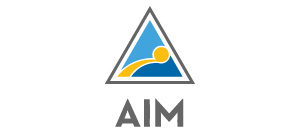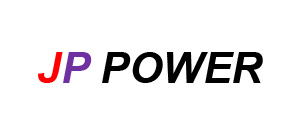Article 1
ONE LAST FAVOUR FROM THE OLDER GENERATION FOR THE FUTURE OF OUR NATION

Respect the elder! – This should sound familiar to any Malaysian child growing in any typical Malaysian household. Regardless of religious belief or ethnic background, it is common sense for anyone to understand that those of an older age group from us should be treated with respect. Because of this, we Malaysians address people daily, be it a familiar face or not, by “Abang, Kakak, Uncle and Auntie”.
However, things take an unconventional turn as we enter the workforce. Suddenly, it was no longer relevant to refer to colleagues based on their age alone. Other variables such as position, function and seniority are prioritised overage.
“A man can only attain knowledge with the help of those who possess it.
This must be understood from the very beginning.
One must learn from him who knows.”- George Ivanovich Gurdjieff (Russian philosopher)
I had the opportunity to study and work in Japan during the late 1990s and early 2000s. It was rather a shocking experience to see a younger-aged colleague to be called “Sempai” and given more respect just because he or she had started working in the company a few months earlier than a newly hired middle-aged manager. To the Japanese, being a “Sempai” (senior) means that one would have more valuable work-related experience and that is deemed to be more precious than anything else.
Malaysians may not be as extreme as our Japanese counterparts, but I strongly believe that “the only source of knowledge is experience” as what Albert Einstein was once quoted. Hence, I trust that there is merit to ensuring that the experiences of our “elders” should be strategically captured, managed and transferred for the benefit of future generations.
The question is, where to start?
Although knowledge and experience may often be used interchangeably here; first and foremost, understanding of “the knowledge component of the experience” is essential. There are many ways to approach this, but the more knowledge-management-friendly term would be to categorise our “elders’ experience” into:
- Explicit Knowledge
- Tacit Knowledge
Explicit Knowledge is the knowledge that can be transferred from one person to another by means of a physical medium. This includes text and visual media such as books, articles, journals documents, videos, pictures, graphs, data, historical events and others. By compiling and converting these “experiences” into such medium, the future generation would be able to access the information when needed.
The second one, Tacit Knowledge is more complex. Tacit Knowledge is abilities gained by circumstances or after going through specific scenarios and real-life events. This is difficult to transfer as it requires experiencing it not only with actual senses but also considering the emotional and psychological impact that affects future behaviour of the person. A simple formula to convert tacit knowledge into something that resembles explicit knowledge would be to come up with “If this happens, then do this” written instructions.
Once the knowledge component of the elders’ experience is formulated into such content, effective delivery of the knowledge is to be considered – the act of teaching the knowledge or training the skills systematically in order to transfer their gained experience to another.
For example, HRD’s Train-The-Trainer certification programme which consists of key content such as plan adult learning, design competency-based training programme and effective training delivery among other modules, would enable better comprehension of core competencies to build the right foundation and increase the likelihood of delivering a successful training session.
Narrowing the scope to “elders in an organisation”, higher management may want to consider utilising their HRD Corp funds via direct levy deduction for this Train-The-Trainer programme or even basic formal Coaching and Mentoring training to be embedded into their talent development pipeline as part of a secession plan strategy, possibly as soon as a key person is identified or latest by 5 years before the key person reaches retirement age. This is to ensure that the organisation doesn’t lose all the experience gained and retrains the knowledge within the people in the organisation.
How effective is this? On that note, higher management need not worry as HRD Corp has you covered.
“With the introduction of HRD Corp Training Effectiveness Evaluation (HRD-TEE) which standardises the yard-stick for evaluation of training, we will not only have access to analysis of the effectiveness of training at the output level, but for HRD Corp signature programmes such as Train-The-Trainer (HRD-TTT), we will also get to measure at outcome level. This ensures the transparency of results and in the long run, helps to increase the quality of training offered to the market.”
So on a broader level, once we equip the older generation with the know-how to categorise and formulate their gained knowledge into content, and systematically polish their ability to teach and train others effectively, we may be able to tap on their rich experience and eventually pair it with the youth’s strength, energy and technology ability. There would be no reason that together, we can’t succeed at taking Malaysia to the next level.
We can no longer deny the fact that Malaysia is leaning towards becoming an ageing nation. As our elder generation gradually exits the workforce and retire after putting years of sweat and tears into taking our beloved country to where it is today, we can’t help but feel that they can still greatly contribute to our nation in an altered role and capacity.
As my mentor once said, “The best of charity is when a man gains knowledge, then he teaches it to another.” And what better way to leave a legacy than to indulge me with this final favour for the sake of our own nation’s future.

Written By :
Ahmad Fauzan Othman
Head Trainer,
Access Ideas (M) Sdn Bhd
* The views and opinions expressed in this article are those of the authors and do not reflect the official policy or position of HRD Corp.
Article 2
LIFELONG LEARNING FOR ADULTS

With more than 20 years of experience in manufacturing and providing training to adults in the industry, I would like to offer my point of view about lifelong learning for adults. The world is changing constantly and society is evolving dramatically. We are living in the knowledge-based economy in this 21st century where knowledge is everything. What is lifelong learning? In my opinion, lifelong learning is happening throughout our lives; from the moment we born, we begin to learn more as we go through our life journey as children, teenagers and adults. We never stop learning even as we age. I believe in lifelong learning and there are plenty of reasons for continuous adult education, and lifelong learning influences the success of individuals in many aspects of life.
More and more adults are persuading further education as lifelong learning. Many studies show that there are many reasons for studying, such as for gaining quality jobs, followed by obtaining a formal academic qualification, receiving a higher salary, gaining knowledge and lastly is as a joy of learning. However, for adults with a higher level of education, it is mainly due to voluntary desire for knowledge; meanwhile, for adults with a lower level of education, it is usually due to employment-related reasons. Other studies also show that the factors that influence success in learning among the adults are due to personal development, the influence of society and social environment, talent of that individual, the influence of teacher and financial situation of the individual, and many others.
In general, I think there are two main factors which influence adults to go for lifelong learning.
I. Personal development
More and more adults are persuading further education as a lifelong learning.
“Continuous professional training involves the development / improvement of basic professional abilities and skills, but also getting some new professional qualifications in the work field. This is done throughout life, being also known from the terminological point of view as lifelong learning / education/training, as well as permanent learning / education / training or vocational training”
- Mergeani, Dănciulescu, and Dănciulescu, 2017
Some examples of personal development such as improving self-awareness, improving self-knowledge, improving skills and/or learning new ones, developing strengths or talents, improving a career, building employability, improving social relations or emotional intelligence and many more purposes. And adults can archive all these via educating and train themselves.
II. Society and societal development
The second factor is about the influence of society and societal development on adult lifelong learning. Adults of different age ranges have different educational purposes depending on their roles in society. For instance, young adults see learning as a path for career development, financial sustainability, peer relationship development and lifestyle balancing. As they become middle-aged adults, they know where they are and how much further they can expect to go but their discontent about personal development grow as well. And these adults tend to refocus their goals via self-evaluation towards personal growth or development. And older adults pursue further learning or education for self-improvement.
From what I have described; it can be seen that adults may have different learning purposes throughout their lifetime. As a Professional Trainer and Consultant, I realized that not all adult learners are self-directed and self-motivated learners. Some adults are highly dependent on teachers/instructors to gain knowledge. I think overly dependent adults learners have a problem with trust — and the person who the learner has trouble trusting is himself/herself. These adult learners may be reluctant to think for themselves, to make decisions for themselves, to talk for themselves. Instead of looking inward for answers, these overly dependent learners look to educators for support and assistance. From a motivational point of view, not all adult learners have intrinsic motivation to learn. For instance, some adults may be extremely motivated to learn such as attending training lessons to learn new skills and knowledge because of job requirements or employer’s business requirements (examples of external factors).
Besides that, as adults have prior knowledge and experience when they come to learning, then it can be expected that there are adults who are resistant to learn. Hence, their learning will be more on accommodation than assimilation. For example, something as simple as adults’ routine life experience that they have created in their home and professional lives has turned into strong habits, and adults do not like changes. To some, a change basically implies that whatever they’ve been doing until now has not been proficient enough, thus it requires them to concede that they were not right or competent. In my opinion, adults usually do not like to being told, even if it’s just implied, they are incorrect, let alone admitting it.
Adult learners are distinct from children learners and thus, warrant a different approach to teaching and instructional designs. Adult educators such as trainers must realize that adult learners of different ages and life roles have different needs for learning and learning abilities. Therefore, trainers must also learn to adapt their training and instructional methods that relate to adults’ social and personal development needs and the roles they play in the society these adults. Different adults have different lifelong learning intentions, aims and desires. Trainers must be ‘fluid’ in the design of teaching and instructional strategies. As not all adults are self-directed and self-motivated in learning, trainers need to look into ways to support the learners in learning.
Reference(s)
Mergeani, N., Dănciulescu, A. G., and Dănciulescu, R. (2017). Continuous education and training of adults – purpose of an active life on the labour market. Junior Scientific Researcher, 3(3), 9 – 18.

Written By :
Stephen Lim Kean Jin,
Professional Consultant, Trainer and Auditor,
JP Power Horizon Sdn Bhd
* The views and opinions expressed in this article are those of the authors and do not reflect the official policy or position of HRD Corp.









